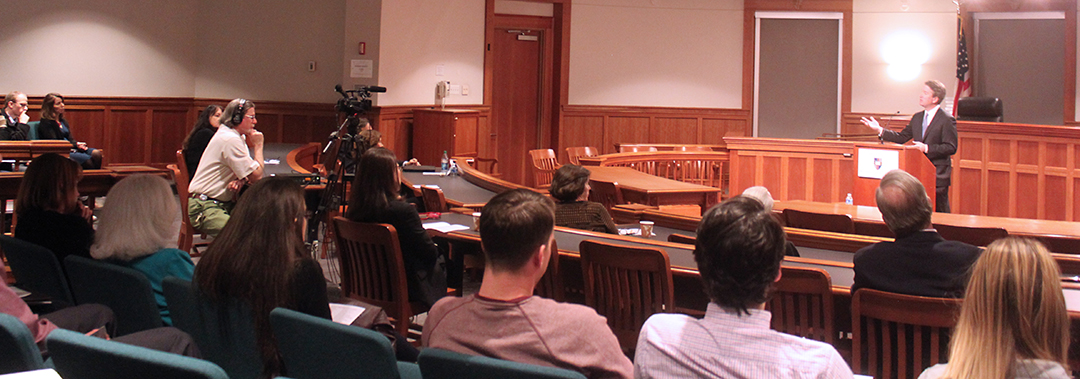
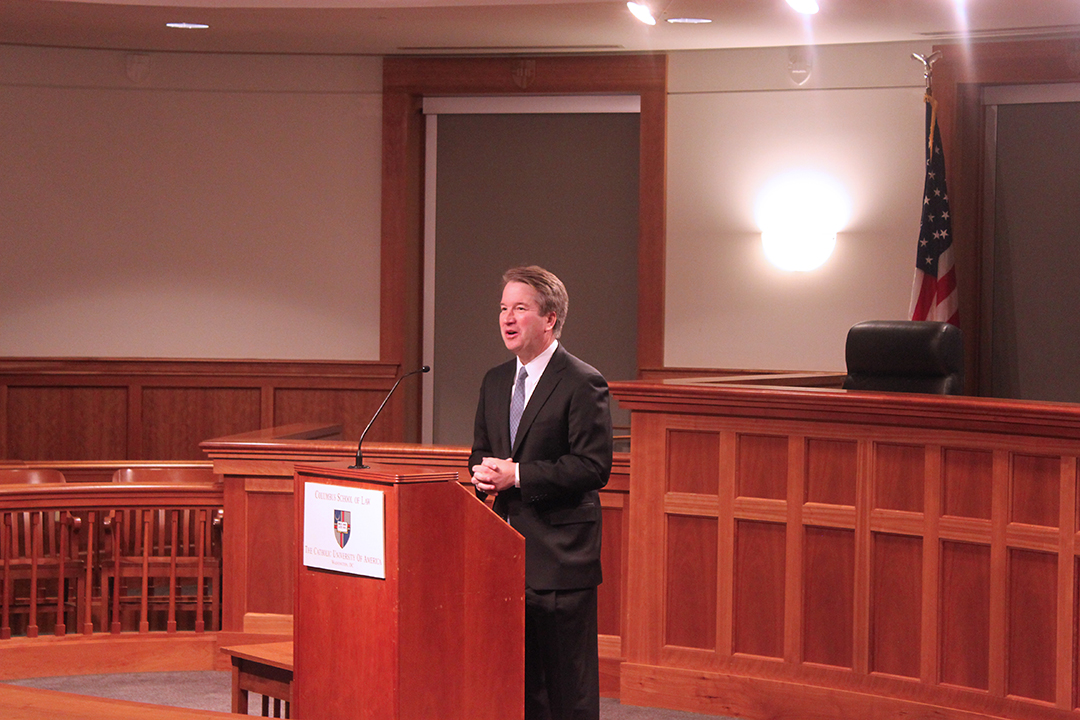
Is impartial and effective judging really a matter of calling judicial ball and strikes, as United States Supreme Court Chief Justice John Roberts memorably described the role of judge during his confirmation process? The analogy has some merit, according to the Hon. Brett Kavanaugh, United States Court of Appeals for the D.C. Circuit. Delivering the 2015 Saint John XXIII Lecture at the Columbus School of Law on March 30, Judge Kavanaugh said the comparison of jurist to baseball umpire goes only so far, but there are some similarities. A primary one is avoiding any semblance of partisanship. "Judges need to follow the law, not make the law. That has to be our aspiration in a system of evenhanded justice," said Kavanaugh. "You have to check political allegiances at the door when you become a judge." Like baseball umpires, "judges shouldn't be making it up as you go along," he added.
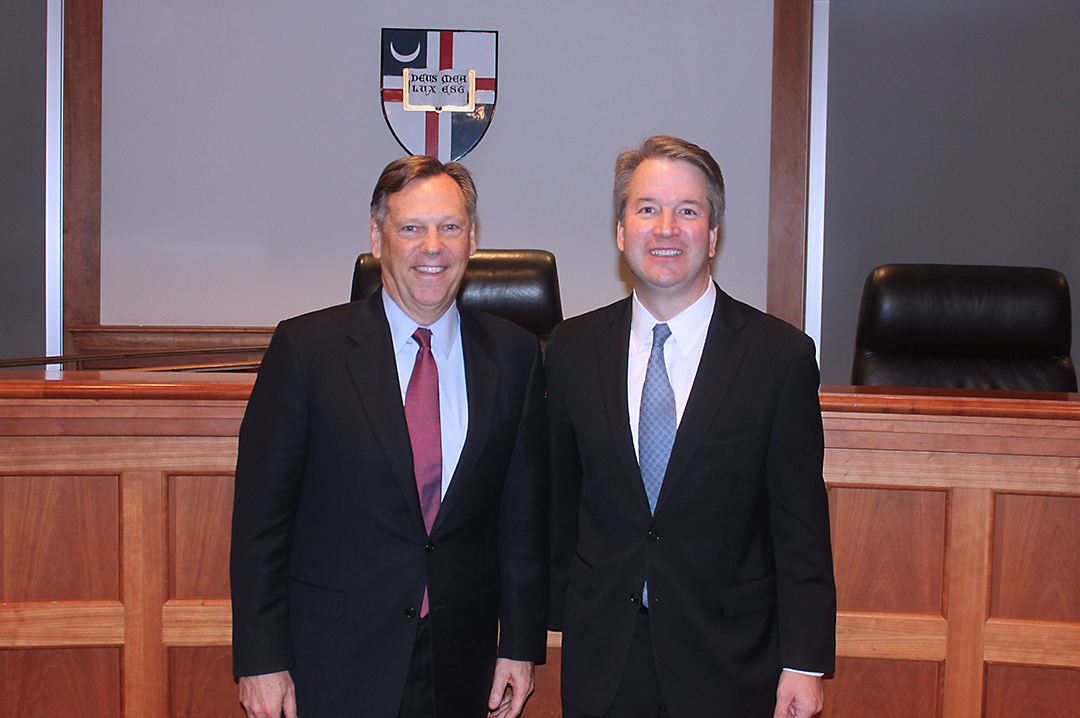
Kavanaugh noted that the core judicial duty of statutory interpretation is less contentious these days as more judges are guided by the precept that the process starts with what the text plainly says, an approach to judging championed for many years by Supreme Court Associate Justice Antonin Scalia. Yet, adhering to text alone has its drawbacks, Kavanaugh noted. "There are limits to this vision. We're not robots. There are areas of the law that sometimes require discretion," he observed. Like baseball umpires, judges accept that some of their decisions and opinions will come under fire from those displeased with the result. While some criticism is unavoidable, Kavanaugh suggested that Congress can tamp down such negative reactions by passing legislation that does not invite heavy judicial interpretation in the first place. "Clean laws and clean rules avoid disputes," said the judge.
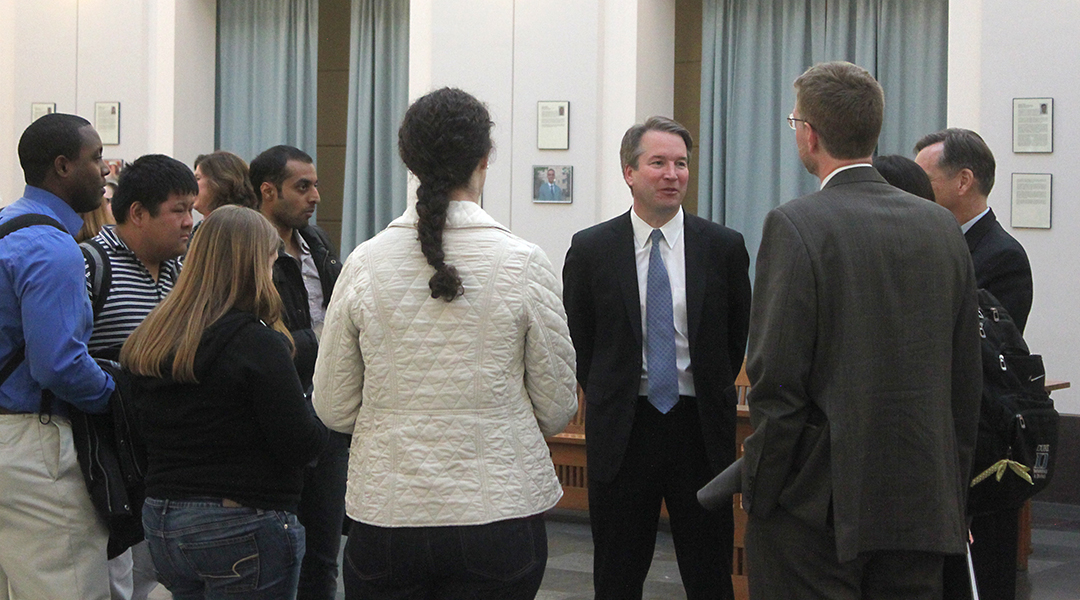
Kavanaugh was appointed to the U.S. Court of Appeals for the D.C. Circuit in 2006. His court is widely considered one of the most influential in the country because of the gravity of the cases it considers. Nine years into the job, he has learned that the best judges maintain a level of humility, civility, dignity, and decorum. "We [judges] have a limited time, a limited role, a limited place," said Kavanaugh. A graduate of Yale Law School, Kavanaugh served as a law clerk to Judge Walter Stapleton of the U.S. Court of Appeals for the Third Circuit; then for Judge Alex Kozinski of the U.S. Court of Appeals for the Ninth Circuit; and later for Justice Anthony M. Kennedy of the U.S. Supreme Court. From 1994 to 1997 and for a period in 1998, Kavanaugh was Associate Counsel in the Office of Independent Counsel Kenneth W. Starr. He was a partner at Kirkland & Ellis in Washington, D.C., from 1997 to 1998 and again from 1999 to 2001. From 2001 to 2003, Judge Kavanaugh served as Associate Counsel and then as Senior Associate Counsel to the President. From July 2003 until his appointment to the court in 2006, he was Assistant to the President and Staff Secretary to President Bush.
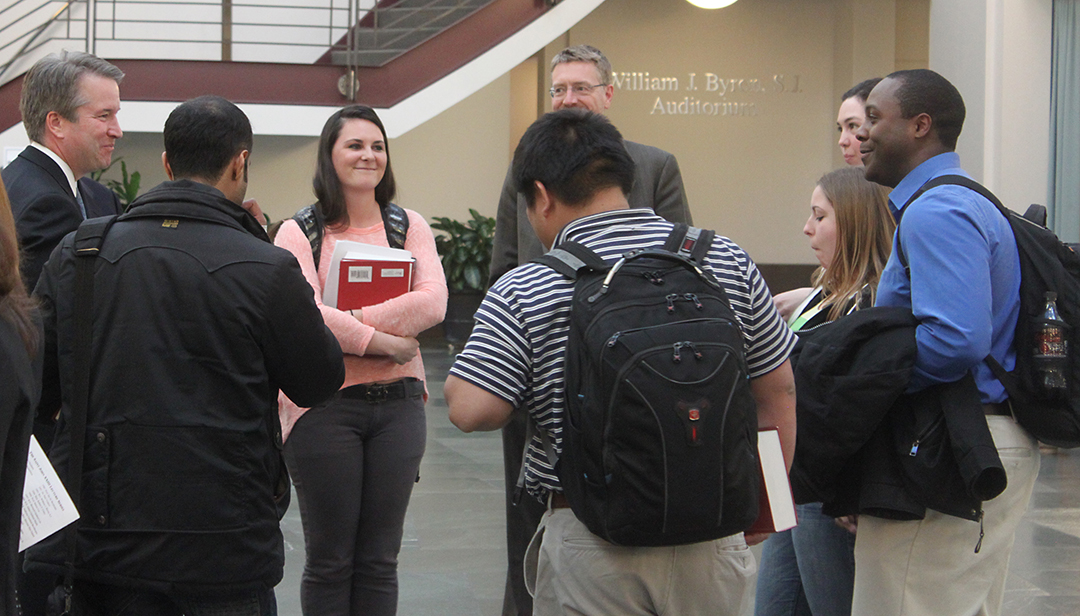
Since joining the Court, Kavanaugh has taught full-term courses at Harvard Law School, Yale Law School, and Georgetown University Law Center. Kavanaugh serves as a member of the Committee on the Judicial Branch of the Judicial Conference of the United States. Established in 1965 to honor the pontificate of Saint John XXIII, the Saint John XXIII Lecture Series invites outstanding professionals to share their perspectives on a wide variety of current topics in a formal lecture presented to the law school and university community.
